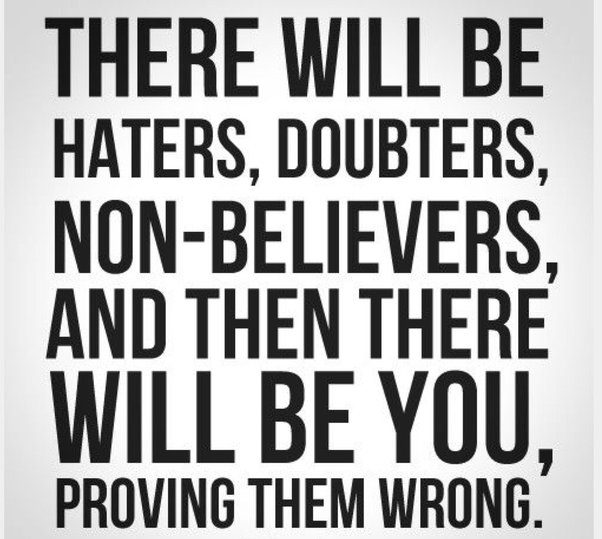No one will doubt you more than you doubt yourself. People and your environment will try to make you forget your greatness and magnificence; don’t fall for it. Self-doubt is an emotion we all have to deal with at some point, especially when we are stretching beyond our reach, moving out of our comfort zone, or attempting to do the extraordinary. As American industrialist and automobile pioneer Henry Ford once quipped, “Whether you think you can, or you think you can‘t–you’re right.’ Self-doubt cripples a lot of dreams as one needs the self-confidence and assurance to push through the inevitable tough times and winter period on your path to achieving greatness. It will get extremely tough, but that is what the path less travelled entails. There is a reason most people opt for the path of least resistance, especially when self-doubt pops up when you are in debt, relational crisis right, left and center, anxiety, worry, and the vicissitudes of life don’t cease.
If you can trust yourself when all men doubt you, But make allowance for their doubting too – If Poem, Rudyard Kipling
You’ve got to keep pushing, keep your head up high always, don’t get too high and never get too low. Let go of the doubt, ignore the naysayers, remember why you started, the big picture and keep showing up daily; it is not a matter of whether you will achieve your ultimate goal but of when.
Meditations
Daily Calm with Tamara Levitt – Magnification
As important as mindfulness is, it can be seen as just one branch of meditation practice. Concentration is focused attention; we practice concentration by bringing our attention repeatedly to one tiny piece of our experience, like the breath. As we gain more ability to focus on this one object, the quality of our attention changes, becoming less scattered and more piercing.
When we are highly concentrated, our attention is like that; allowing us to cut through mental chatter to gain deeper insight into our mind, body and emotions. Mindfulness is the awareness that lets us notice our experience as it is without judgment or reactivity. If concentration is the magnifying glass, mindfulness is the sunlight that shines through the glass. As we become more mindful, it is if we have more light to shine unto each moment of experience.
Daily Jay with Jay Shetty – Question Your Narrative
The Rashomon effect is a storytelling and writing method in cinema in which the individuals involved give an event contradictory interpretations or descriptions, thereby providing different perspectives and points of view of the same incident. The Rashomon effect is based on the 1950 Japanese film Rashomon, which describes the phenomenon of the unreliability of eyewitnesses.
We tend to go through life accumulating a series of stories that are mostly based on our account of the present moment. Rarely do we revisit them, turning the kaleidoscope to see if other patterns emerge. Over time, our stories become immutable, but we’d be wise to question our narrative.
It is wise to question our mythologies, especially those that are disempowering, opening our minds to what else we might find. Hold your narratives a bit loosely and be mindful of what you take from them. Chances are there is more to uncover. Try to keep your story more fluid rather than setting them in stone.
Daily Trip with Jeff Warren – Four Medicines
Podcast
- “We Attract People Based on Psychological Wounds” #1 Neuroscientist Explains How to Manifest Love!
All the best in your quest to get better. Don’t Settle: Live with Passion

Comments are closed.